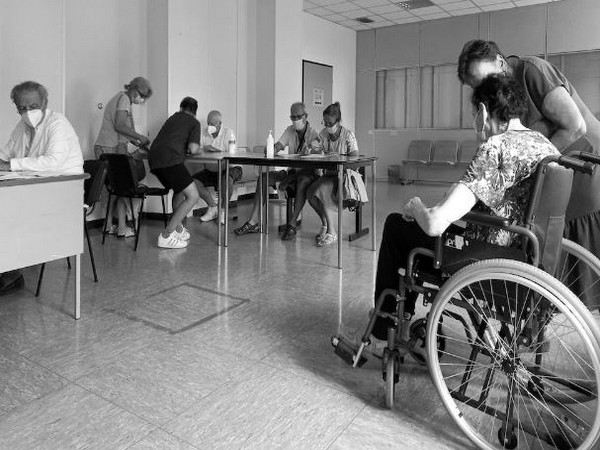Healthcare Crisis in Sindh: Public Hospitals Struggle Amidst Overwhelming Shortages
Sindh's public hospitals are in crisis, with severe shortages of beds, ventilators, and staff, particularly impacting Karachi. Patients face long waits and inadequate care, as major hospitals are overwhelmed by local and provincial demand, highlighting the urgent need for expanded healthcare infrastructure and resources.

- Country:
- Pakistan
Public hospitals in Sindh, particularly in Karachi, are grappling with a dire healthcare crisis, accentuated by acute shortages of beds, ventilators, and medical staff. Residents and incoming patients from across the province find themselves in critical situations, as detailed in a report by The Express Tribune (TBT). Among the city's major hospitals, there are a mere 6,500 beds and 250 ventilators available, compounded by a chronic understaffing issue, crippling their capacity to accommodate the existing patient influx.
One heartbreaking story comes from a resident who recounted her uphill battle to secure gallbladder surgery for her husband at Jinnah Hospital. "I spent two arduous weeks seeking a bed for my husband, but to no avail. Patients from disadvantaged backgrounds often face extended waits at government hospitals, severely impeding their access to necessary treatment," she told TBT. Ikram Sultan, a former Health Director of Karachi, attributed the crisis to inadequate facilities in district hospitals throughout Sindh's interior, which drives patients to Karachi. "The situation at Jinnah Hospital is exacerbated by an overwhelming patient load from both Karachi and nearby cities. The stagnation in bed numbers for decades and a stark shortage of medical staff necessitate immediate government intervention to appoint specialists in district hospitals and establish secondary care facilities," he added.
Currently, 60% of beds in Karachi's district hospitals are occupied. While offering basic services, these facilities lack essential paramedical staff and specialists, compelling patients to seek care at tertiary hospitals, the TBT report notes. Overcrowding is a severe issue at major hospitals, reflecting an extraordinary strain on their resources. Civil Hospital alone handles approximately 2,000 patients daily in its accident department and sees about 8,000 outpatient visits. Admissions average about 200 patients per day. Hospital head Khalid Bukhari noted an influx of patients from Sindh and Balochistan, leading to extended wait times of one to two months for local patients before receiving treatment.
Not much different, Jinnah Hospital faces similar challenges. Spokesperson Jahangir Durrani highlighted the inactivity of intensive care units due to a 50% staff shortage. "To utilize the equipment correctly, trained ICU technicians are imperative. Presently, only five of the 15 available beds in the chest ICU, and eight out of 21 beds in the surgical ICU, are operational," he stated for TBT. At Shaheed Benazir Bhutto Accident and Emergency Trauma Centre, Executive Director Sabir Memon indicated that out of 500 beds, 60 units remain non-functional. The Sindh Government Liaquatabad Hospital, with its 200 beds, four operating theatres, and 16 ventilators—75% of which are occupied—still lacks a CT scan machine.
The shortages similarly impact Lyari General Hospital, Sindh Government Qatar Hospital, Sindh Government Saudabad Hospital, Sindh Government Korangi Hospital, and Sindh Government New Karachi Hospital, as per TBT's findings. (ANI)










